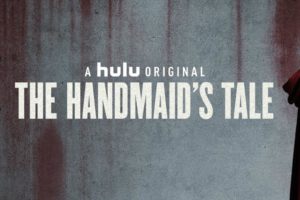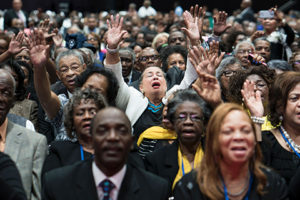“Train up a child in the way he should go,
Even when he is old he will not depart from it.” Proverbs 22:6
I can remember with vivid reality the shock that hit me on August 10th, 2009. I was driving down a long, drab, and straight road, flying by orchards of apricot trees in the central valley of California, when I was listening to voice messages on my cell phone (I was using my Bluetooth), and hear this announcement from my mom – that my closest and near lifelong friend and his wife just had their first child: Karis Michelle Freeman. The stunning reality was that my closest friends were now not only getting married right and left, but having their first kids. I won’t forget the day, a few weeks later, when I first held her in my own hands. As I held this breathing, moving, bubbling (and pooping!) human being in my hand, Proverbs 22:6 kept playing through my head. “This day,” I committed in my mind, “I will pray for your salvation Karis, and that you may be the first of many in my dear friend’s family to grow up to know the LORD and to be His disciple forever.”
88% of children raised in evangelical homes leave the church at the age of 18, never to return . Considering my experience above, you can bet that this statistic concerns me. And I don’t yet even have my own kids. This statistic is absolutely alarming, and it begs the question “WHY!?”
There are many answers out there, but one that has received a great deal of attention over the last year is that proposed by the film Divided, and the message of the National Center for Family-Integrated Churches (NCFIC). Captained by Scott Brown, and championed by names such as Ken Ham, Paul Washer, and Voddie Baucham, the message of this film is gaining popularity and momentum. So, what is the answer? Why are droves of my generation leaving the church?
Youth Ministry. Youth ministry is to blame for this great failure.
Wow. Seem counter-intuitive? Well, watch the film, and make your own assessment. To do my best summarization the arguments of the NCFIC, the problem is this:
1) This generation of “Christian” young adults has lost godly parenting and instruction. Basically, spiritual family leadership has disappeared from the church.
2) Parents instead are relying on the Church, and their Seminary educated professionals, to raise their children.
3) Age stratified ministries split families apart into these little focused groups, further adding to the erosion of family identity.
4) Many modern youth ministries operate with the primary objective of attracting and entertaining young people (making themselves centers of entertainment), rather than making disciples through the Gospel.
5) Age-stratified ministries are not biblical, as they are never taught or modeled in the Bible.
6) The strategy of stratified ministry (elementary, Junior High, High School, College-Aged, etc) is not only never instructed in the Bible, but it is the spawn of Darwinian sociology – the polluting Syncretism of the church and Western Evolutionary agendas
Thus, the clarion call of Divided is that the church must abandon youth and age stratified ministries completely, as incorporating these is to make friends with the world, and essentially, to guarantee that the judgment of disappearing youth will continue if the church doesn’t abandon youth ministry.
There are many reviews out there on the video, some that are similarly polarized and favor it. There also remain others who feel lead to offer it needed critique. These reviews bring up excellent points. I would implore you to watch to movie, and also to please read one of these later critiques, which provide a better response than I can provide, and in fewer words than I could too.
By way of my own review, I would say that I would whole heartedly agree with 1) and 2) above, that sadly 3) and 4) do occur in some congregations, but that it is a generalizing caricature of youth ministry to say that they are true of every church with such ministries, and that 5) and 6) are precarious and outrageous, respectively.
Because I feel that 5) is well answered by the reviews above, I want to focus on what I see addressed less frequently with vivid detail, and that is 6). The NCFIC looks at age-stratefied ministries as a strategy foreign to the church until the introduction of the Sunday School movement. Robert Raikes, the Father of the movement, started schools to combat illiteracy among the children of the industrial revolution, who worked 12+ hours a day, Monday through Saturday. Thus, Sunday was the only day available to teach them skills such as reading and writing. And of course, the Bible was the primary reader for these disciplines. Additionally, prayer, hymn-singing, and basic biblical theology and morality were also a part of the curriculum. By the 1870’s, compulsory state education was mandated for children, and Sunday School thus became primarily about Christian education. The NCFIC sees this as the beginning of the demise of youth, and quotes contemporaries of Raikes who saw this movement to evangelize and to serve the oppressed as “what will in the end, destroy all family religion” (Rev Thomas Burton, 22:20 in Divided).
Then, Divided discreetly takes a huge shift by then talking about humanist philosophers such as Jean-Jacques Rousseau, G. Stanley Hall, and John Dewey. Rousseau is introduced as one who argued that education was a responsibility of the state, versus the family; Hall as the one who pioneered evolutionary thinking to child development to invent the life stage of adolescence; Dewey as the one who institutionalized the age segregated classroom environment. Thus, the argument of Divided suggests that anything the church does related to age-stratified education must be the syncretism of these secular thinkers.
So, is this true? Does it logically follow, to quote the film, that age-stratification is “the seed of pagan division…now bearing fruit in our churches?” (27:38).
As I hope you can see, the answer is no. What we see is a genetic fallacy, the logical error of discrediting a concept or idea simply based upon its origins. Furthermore, what fellowship did Rousseau, Hall, and Dewey have with Raikes? Outside of the fact that they all either did or at one point offered an opinion on the matter of educating children, I cannot see how the evangelistic compassion that drove Raikes’ ministry to reach youth has anything to do with the pedagogical intensions of scholars seeking to create a school strategy.
But furthermore, what about the argument made by Doug Phillips, that “for eighteen hundred years, the assumption was: children are with their parents in the meeting of the church, [and] parents disciple their children” (25:45)?
What about…catechizing? Isn’t there some 1800 years of history and tradition around this practice? Seems like…
“These catechetical classes and schools were intended to prepare neophytes, or new converts, for church membership, and were also used to instruct the young and the ignorant in the knowledge of God and salvation. They were effective… and have aptly been termed the “Sunday schools of the first ages of Christianity. Their pupils were divided into two or three (some say four) classes, according to their proficiency” (Schaff, A Religious Encyclopedia, Vol 3, 2262),
Notice the subjects of chatecisms were those young “in the knowledge of God and salvation.” However, considering the pervasive combination of culture and Christianity in the Holy Roman Empire and beyond until the Enlightenment, who else could the apply to besides those young, or the converted barbarian?
A shakey assertion, I realize. But, better evidence for a history of the catechism of children can be seen in Gabriel Compayre’s work History of Pedagogy. In his discussion on Scholasticism in the later Middle Ages (which, we must lament, was simply a sad season for the education of the human person in general – hence the title “Dark Ages”), notes that the emergence of early Universities made them the only educational center “save claustral and cathedral schools, to which must be added some parish schools, the earliest example of our village schools” (77). These schools were void of education of subjects such as writing, math, the sciences, history, etc- they were strictly for religious indoctrination of the masses. In fact, in this time there was the division of the Schola Minor (elementary schools) and the Schola Major (more advanced school)
And, coming back closer to modern day, what about the teachings of the Reformed Cathecisms and Confessions about the education of children (again, as “age-stratified” and distinct from educating them with adults)? For a more thorough discussion, I refer to Shawn Mathis and the puritan board on the matter. But to make brief mention, the Geneva Academy itself had a schola private (for the lower ages, which was divided into seven grades), and the schola publica. We see also that Article 21 of the Dutch Church Order of Dort ensures that “there are good school teachers not only to teach the children reading, writing, and languages…but also…to instruct them in godliness and in the Cathcism.” John Knox set up a children’s catechism system in America, and we even see this developing in the providence of Norwich, Connecticut.
So in short…
Are American families falling apart due to a lack of parenting and leadership in the home? Yes.
Are many parents tempted to let the church raise their kids, and throwing in the towel when its comes to their responsibilities? Yes.
Are many youth groups prone to becoming entertainment centers more than programs for Christian and Biblical education. Yes. But again- it depends on the youth group, and it depends on the leader.
Is age stratified ministry the germ of pagan philosophers whose growing roots now maliciously seek to break the foundation of the church and Christian family? History suggests…No.
But, what about the early church? What about Jewish communities? Is there any model for age-stratified education, or education of children by teachers rather than parents only, in “the beginning?” And if age-stratified ministry isn’t the crux of the fading of a generation, what is?
Stay tuned for next week.





17 Comments
Leave your reply.